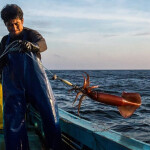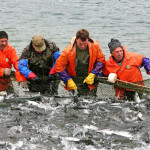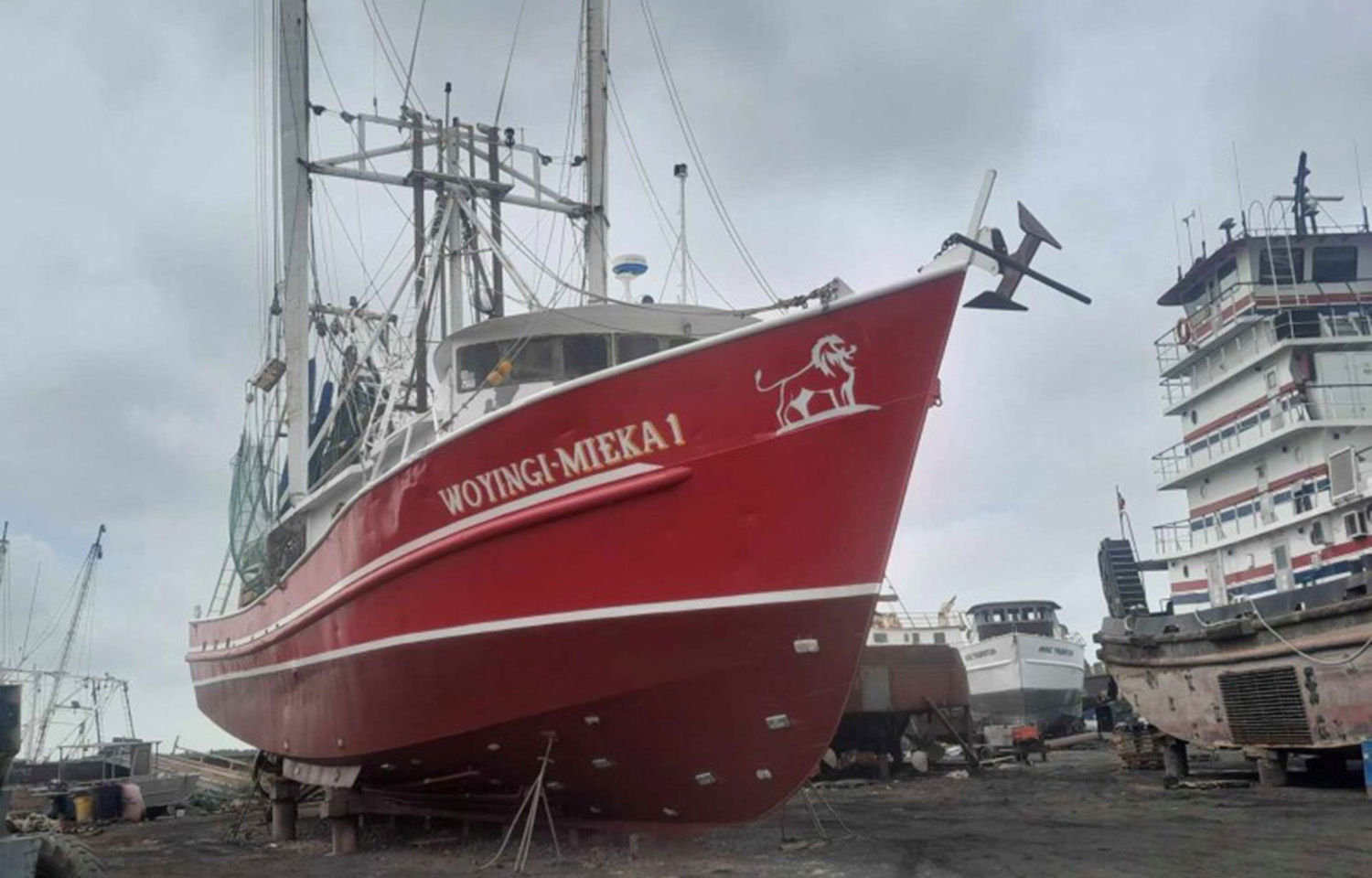The Woyingi Mieka 1 is just one of dozens of boats that Bayou La Batre, Alabama, U.S.A.-based entrepreneur Joe Gazzier is buying and refurbishing for fishermen in Nigeria and other West African countries.
While the U.S. shrimp fishery struggles through low prices and a glut of farmed shrimp entering the country, a number of West African nations are investing in expanding their wild shrimp harvests in order to feed a growing population and tap lucrative markets in Europe.
In August 2023, Nigeria President Bola Ahmed Tinubu said his country would buy U.S. shrimp boats and refurbish them to fish locally and produce high-quality shrimp caught in Nigeria for domestic and foreign markets.
The 56-year-old Gazzier has spent a lifetime in the shrimp business and has been scouring the coast for vessels – mostly around 80 feet – that fit the needs of the Nigerians investing in the shrimping side of their country’s entry into the blue economy.
“I’ve bought boats from around here, Mississippi, and about half in Texas, but they’re all Alabama-built,” Gazzier told National Fisherman. “I’ve sent 17 boats over there this year. I’ve got 18 more ready to go.”
Gazzier is refurbishing and upgrading the vessels before sending them across to Africa.
“We’re cleaning them up and modifying the freezers,” he said.
Chuck Landry, the owner of CCL Enterprises in Houma, is working with Grazzier to get the boats ready.
“We’re taking out the brine freezers and putting blast freezers on deck,” Landry said. “Some may get plate freezers.”
According to Landry, the freezers on deck will take the shrimp down to minus 20 degrees Fahrenheit, and then they will be transferred to a freezer hold.
“This is a good thing Joe’s doing, really,” he said. “A lot of these boats were owned by people who needed to get out.”
Gazzier is having the engines rebuilt to whatever extent necessary. In order to keep the engines running when they get to Africa, Gazzier plans to have a warehouse full of Caterpillar parts in Alabama and another in Nigeria.
“When we need something, we’ll ship it over,” he said.
Gazzier equips boats with Furuno radars, sounders, and plotters for electronics.
“It’s all the same as we use here,” he said.
Once ready, the boats will head to Nigeria under their own power. According to Gazzier, the trip usually takes around 30 days.
“We send eight at a time,” Gazzier said. “It’s 6,400 miles from here to Lagos. In the wintertime, we went straight across, but with hurricane season here, they’ll run down along the coast of South America and then cut across.”
Reporting by Paul Molyneaux







